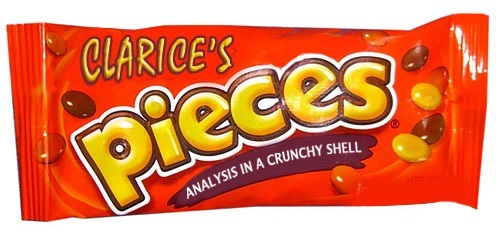
–>
April 16, 2023
Francis Menton at the Manhattan Contrarian, who often has well-considered things to say, posted an intriguing and important blog this week.
‘); googletag.cmd.push(function () { googletag.display(‘div-gpt-ad-1609268089992-0’); }); }
In 2009 the EPA found that CO2 and other “greenhouse gases” endanger human health and welfare because they potentially warm the atmosphere. Many scientists have taken issue with this finding, which has provided the justification for reducing conventional energy sources, raised the cost of energy to consumers, and unrolled massive federal and state spending for manifestly unreliable alternative sources. The Biden administration has pressed this autocracy enabling finding to its bosom, using it to justify regulating everything, — including gas stoves, electric vehicles, air conditioners, home appliances — indeed, anything that makes a good life affordable and efficient.
How well-substantiated was this EPA decision which has so upended our lives and wasted trillions of taxpayer and consumer resources? Not very.
The stated basis for the EF [Endangerment Finding]is a combination of a temperature series where almost half of the data has been manufactured and infilled by computer algorithm, together with model predictions of atmospheric temperature patterns that have never been found in the empirical data as it has been collected.
‘); googletag.cmd.push(function () { googletag.display(‘div-gpt-ad-1609270365559-0’); }); }
CHECC v. EPA, presently in the D.C. Circuit Court of Appeals, presents an opportunity to challenge that weakly supported finding.
The question is whether the appellant CHECC has a sufficient stake in the matter to meet the initial hurdle of what is called “standing.” CHECC (Concerned Household Electricity Consumers Council) is composed of utility payers and the Court is struggling, per Menton, to determine whether they have a sufficient stake to mount a court challenge just because electricity consumers are likely to pay the burden of “without a doubt the single most costly regulatory initiative of all time.”
At the same time,
It is well-established that any person or environmental advocacy organization can obtain standing interest in a clean and healthy environment. That interest is abstract, non-quantifiable, and non-monetary; but the courts have said that it is sufficient.
Menton reports that despite then-president Obama’s admission that that under his plan “the price of electricity will necessarily skyrocket”  and the experience of consumers in places like Germany and California, the court seems hesitant to grant standing to electric consumers at the same time it grants standing to every group that claims a high-minded but totally “abstract, non-quantifiable, and non-monetary “ interest in the matter. Indeed, in this case, the Court allowed a collection of environmental groups to intervene on the side of the EPA “with no more basis for standing than the generalized claim of an interest in a clean and healthy environment.” That is, they granted the group “standing.”
and the experience of consumers in places like Germany and California, the court seems hesitant to grant standing to electric consumers at the same time it grants standing to every group that claims a high-minded but totally “abstract, non-quantifiable, and non-monetary “ interest in the matter. Indeed, in this case, the Court allowed a collection of environmental groups to intervene on the side of the EPA “with no more basis for standing than the generalized claim of an interest in a clean and healthy environment.” That is, they granted the group “standing.”
If the concept of “standing” means anything, some courts seem to have stood it on its head. The D.C. Circuit should allow CHECC which has a clear, predictable, and concrete injury at stake to pursue this challenge.
‘); googletag.cmd.push(function () { googletag.display(‘div-gpt-ad-1609268078422-0’); }); } if (publir_show_ads) { document.write(“
On its face, the brief filed by the CHECC is compelling. Its three main contentions are these:
- EPA uses certain official “surface temperature” records, derived from government agencies NOAA and NASA, as its temperature history. CHECC shows that EPA had no data for these series for most of the world prior to 2000, including none for the entirety of the Southern Hemisphere oceans (about 40% of the earth’s surface right there). To fill the gap, it simply fabricated data by computer algorithm to create a record consistent with its desired results.
- EPA claims that the warming in its (flawed) temperature records can only be explained by human influences. But CHECC shows that a structural analysis of credible temperature series from satellites and balloons, after backing out influences only from certain enumerated natural factors (ocean currents, volcanoes, and solar variations), leaves no statistically significant warming left to be explained by human influences.
- EPA claims its hypothesis is supported by a distinctive warming pattern in the tropical troposphere, known as the “hot spot.” CHECC shows that the tropical “hot spot” does not exist in the real world data.
A friend of the court brief was filed by the CO2 Coalition headed by Professors William Happer of Princeton and Richard Lindzen of MIT.
The Supreme Court has been whittling away its 1984 Chevron opinion which gave great deference to administrative findings. If any administrative finding is more important and less deserving of judicial deference than the EPA endangerment finding, I can’t think of it.
I am confident that should the D.C. Circuit — or the Supreme Court — finally deal with the ridiculous disparity on standing and get to the merits, the EPA finding will be overruled. The climate change fairytale has lasted long enough — forty or fifty years — with no sound empirical backing. It continues unabated in my view because of the great opportunities to politicians and their friends for graft and corruption.
<!– if(page_width_onload <= 479) { document.write("
“); googletag.cmd.push(function() { googletag.display(‘div-gpt-ad-1345489840937-4’); }); } –> If you experience technical problems, please write to helpdesk@americanthinker.com
FOLLOW US ON
<!–
–>
<!– _qoptions={ qacct:”p-9bKF-NgTuSFM6″ }; ![]() –> <!—-> <!– var addthis_share = { email_template: “new_template” } –>
–> <!—-> <!– var addthis_share = { email_template: “new_template” } –>





